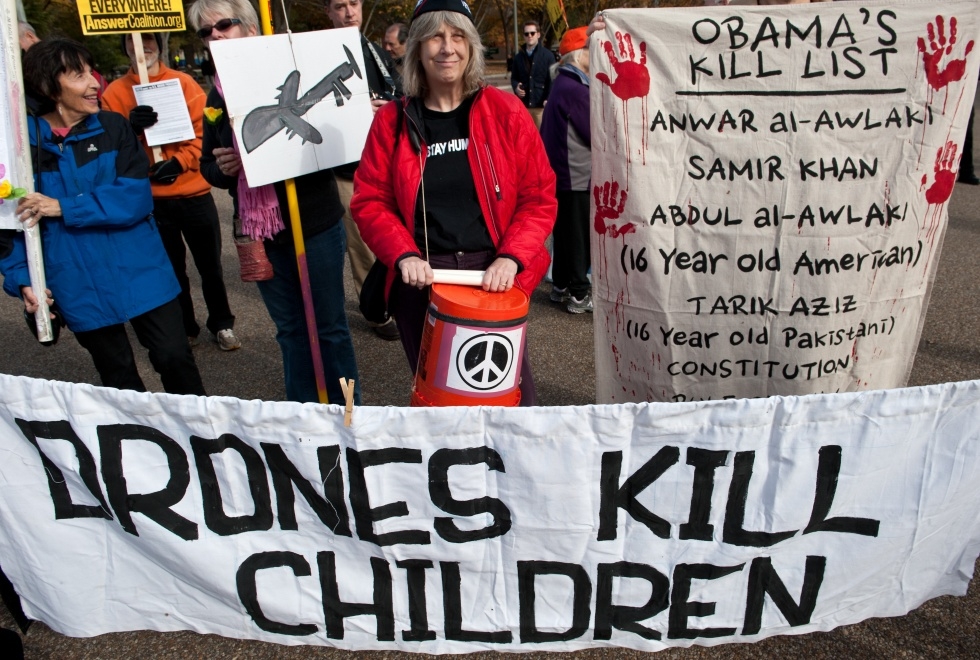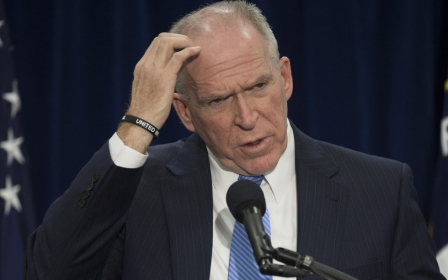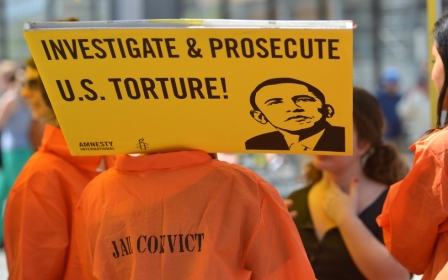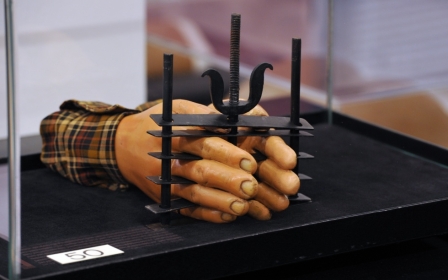Americans suffer from the psychosis of 'Superpower Syndrome'

Last week the US Senate released its report into the CIA torture program. For a little more than 24-hours, some Americans were outraged by the despicable evil carried out in their names under the cloak of fighting the self-defeating war on terror.
By “some Americans” I mean one could summarize, albeit generally, the typical American’s response to the torture report along these partisan lines:
Conservatives: “The report is a load of crap. Besides they’re beheading Americans.”
Liberals: “We did bad stuff. They did bad stuff. Whatever, war is hell.”
All in all, it would be my best guess that genuine and sustained outrage is confined to more or less no more than 10-20 percent of the US population. I don’t have hard data for this guesstimate, I’m merely basing it on my assessment of online and television commentary, as much as my own political windsock and possibly a CBS poll that says, “Only 37 percent believe torture is never justified.”
Americans, by and large, are incapable of discussing the unequivocal barbarity of torture on its own merits i.e. without invoking 9/11, or the beheading of American journalists. In defending the US torture program, CIA Director John Brennan commenced his address with a verbal portrait of the September 11 attacks. In other words, “they hit us first, so there.”
Despite the obvious infantile emotional framing of the CIA’s torture program, Brennan’s response accounts among the more measured. Fox News, which is the quasi-media arm of the Republican Party, was a little more shill. Fox News host Andrea Tataros refuted the findings of the Senate Intelligence Committee report by declaring “The United States is awesome. We are awesome.” In an op-ed, Robert Parry writes, “Her [Tataros] upbeat jingoism was only a slight exaggeration of what Americans have been hearing from much of their media and politicians for decades. At least since the presidency of Ronald Reagan, any substantive criticism of the United States has been treated as unpatriotic.”
Parry nails it, but America’s jingoistic psychosis runs deeper than that - for the nation’s jingoistic psychosis is a bipartisan contagion. Americans of all political leanings suffer from what the psychiatrist Robert Jay Lifton calls the “American apocalyptic entity,” which is a neurosis rooted in what he also calls “superpower syndrome.”
“By that term [superpower syndrome] I mean a national mindset - put forward strongly by a tight-knit leadership group - that takes on a sense of omnipotence, of unique standing in the world that grants it the right to hold sway over all other nations,” writes Lifton. “The American superpower status derives from our emergence from World War II as uniquely powerful in every respect, still more so as the only superpower from the end of the cold war in the early 1990s.”
Lifton says the United States’ sense of omnipotence and invulnerability was completely smashed in pieces by the September 11 attacks. The al-Qaeda led demolition of the Twin Towers led Americans to “a determination to restore, or even extend, the boundaries of a superpower-dominated world.” Sufferers of “superpower syndrome” internalise the belief that the superpower (the state) has a right to revenge the humiliation caused by terrorists, and because of “its unique moral standing, a duty to dictate terms of existence to the rest of the world.”
Torture is not only an act rooted in misguided brutality, it’s also rooted in revenge and humiliation. The CIA’s torture program, and the nation’s ambivalence towards it, is, in itself, a reflection of the collective humiliation American suffered on 9/11. “We know from history that collective humiliation can be a goad to various kinds of aggressive behaviour - as has been true of bin Laden and al-Qaeda,” writes Lifton.
“It was also true of the Nazis. Nazi doctors told me indelible scenes, which they either witnessed as young children or were told about by their fathers, of German soldiers returning home defeated after World War 1. These beaten men, many of them wounded, engendered feelings of pathos, loss and embarrassment, all amid national misery and threatened revolution. Such scenes, associated with strong feelings where one could say that Hitler rose to power on the promise of avenging them.”
Chris Hedges, who has covered conflicts from Bosnia to Iraq; Gaza to El Salvador; says that the “sense of collective humiliation infected the populace in all conflicts” he covered as a foreign correspondent. “Israelis, with a sophistry worthy of the Serbs, would justify the repression and abuse of Palestinians in the name of the Holocaust. The United States invaded and occupied Iraq in the name of the 2001 terrorist attacks, although Iraq had nothing to do with the attack,” writes Hedges. “The powerful, epidemic psychosis is not rational. Arabs become equated with Nazis. The Muslims in Bosnia become fuelled with Ottoman Turks. The United States sees Iraqis as al-Qaeda.”
That Americans conflate Iraqis with al-Qaeda explains why Americans, including the Director of the CIA, invoke 9/11 whenever discussion pivots to the abuse of Iraqis at Abu Grahib and Camp Bucca. “Violence is sanctioned to vanquish an abstraction and crush an absolute evil. Those targeted are almost irrelevant,” notes Hedges.
Lifton draws a parallel between the apocalyptic vision of the United States and that of Islamic terrorists. “In particular, we are experiencing what could be called an apocalyptic face-off between Islamist forces, overtly visionary in their willingness to kill and die for their religion, and American forces claiming to be restrained and reasonable but no less visionary in their projection of a cleansing war-making and military power,” writes Lifton. “Both sides are energised visions of intense idealism; both see themselves as embarked on a mission of combating evil in order to redeem and renew the world; and both are ready to release untold levels of violence to achieve that purpose.”
Those suffering from “superpower syndrome” are incapable of questioning the failed US strategy for defeating terrorism. “The United States becomes a Sisyphus with bombs, able to set off explosions but unable to cope with its own burden, unable to roll its heavy stone to the top of the hill in Hades,” writes Lifton.
Ultimately, the sufferers of “superpower syndrome” are trapped by the notion that violence is the antidote to violence. It’s this psychosis that has America trapped in a forever war in the Middle East.
- CJ Werleman is an opinion writer for Salon, Alternet, and the author of Crucifying America, and God Hates You. Hate Him Back. Follow him on twitter: @cjwerleman
The views expressed in this article belong to the author and do not necessarily reflect the editorial policy of Middle East Eye.
Photo: Anti-war activists hold signs during a rally against US drone attacks in front of the White House in Washington,DC on 15 November, 2013 (AFP)
Middle East Eye propose une couverture et une analyse indépendantes et incomparables du Moyen-Orient, de l’Afrique du Nord et d’autres régions du monde. Pour en savoir plus sur la reprise de ce contenu et les frais qui s’appliquent, veuillez remplir ce formulaire [en anglais]. Pour en savoir plus sur MEE, cliquez ici [en anglais].





